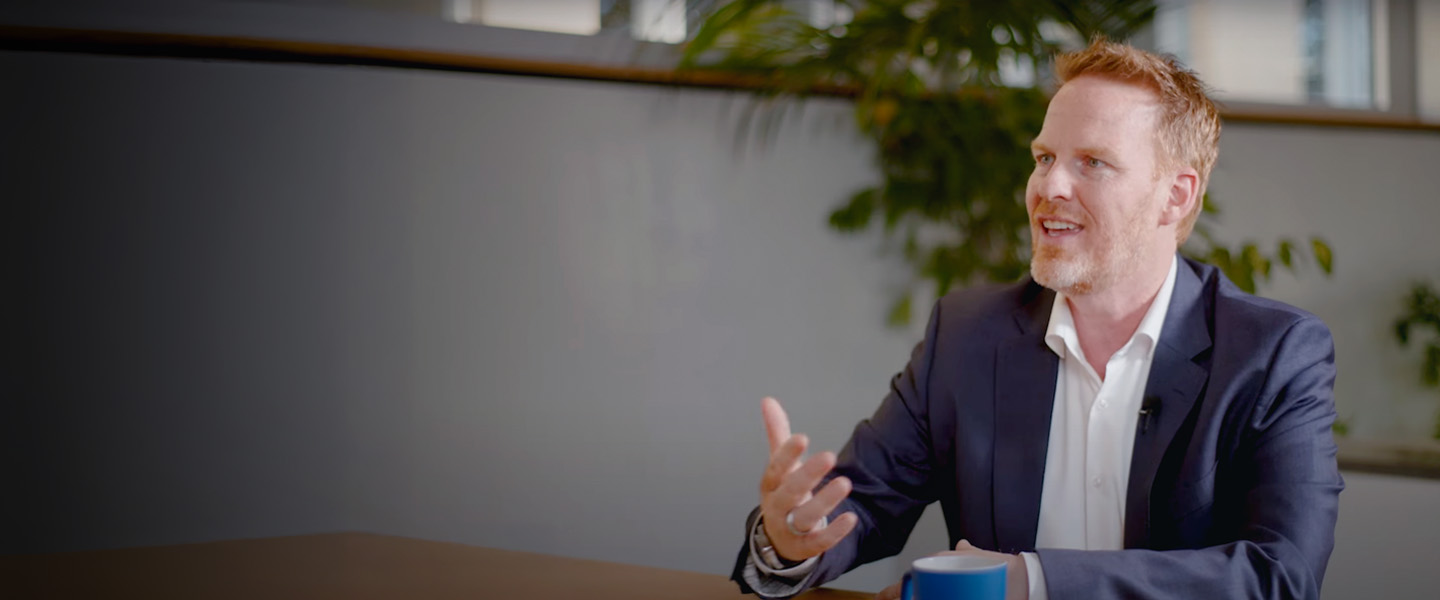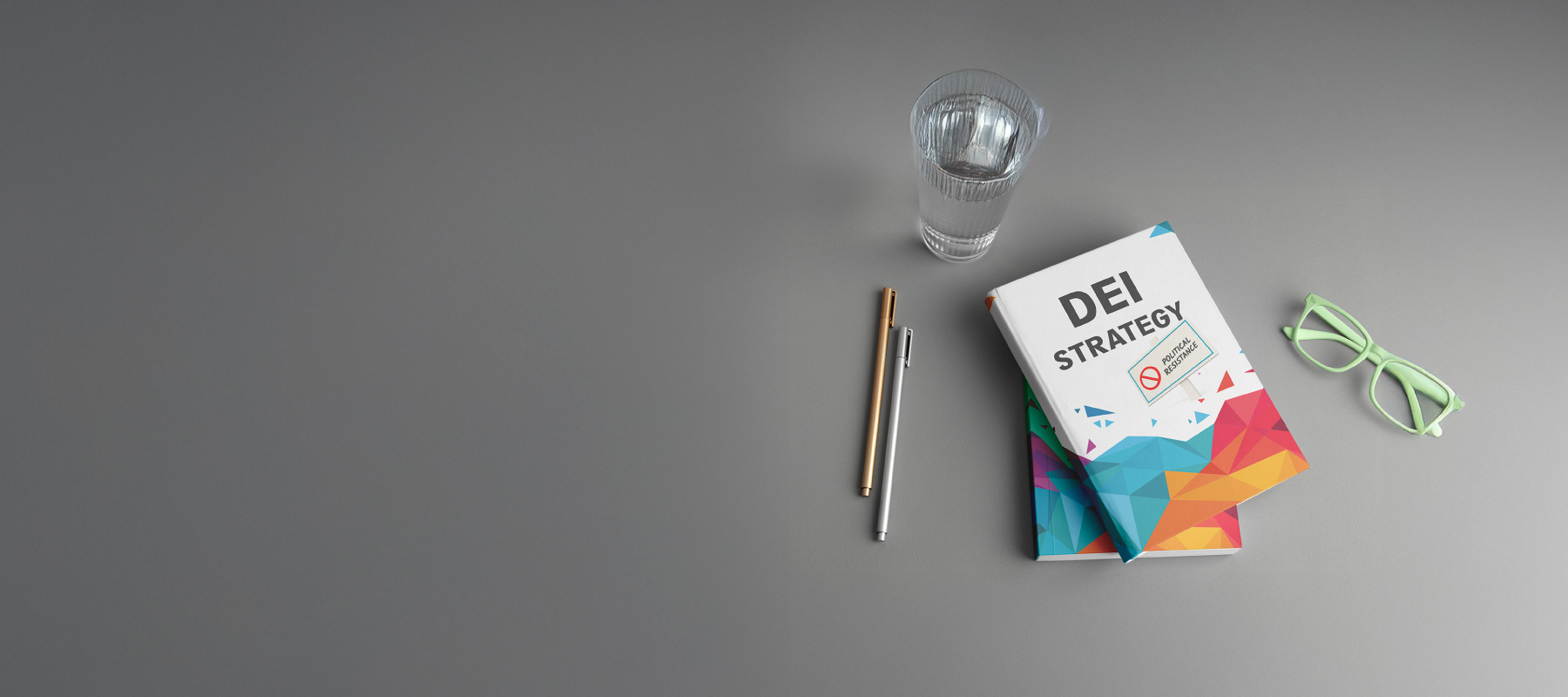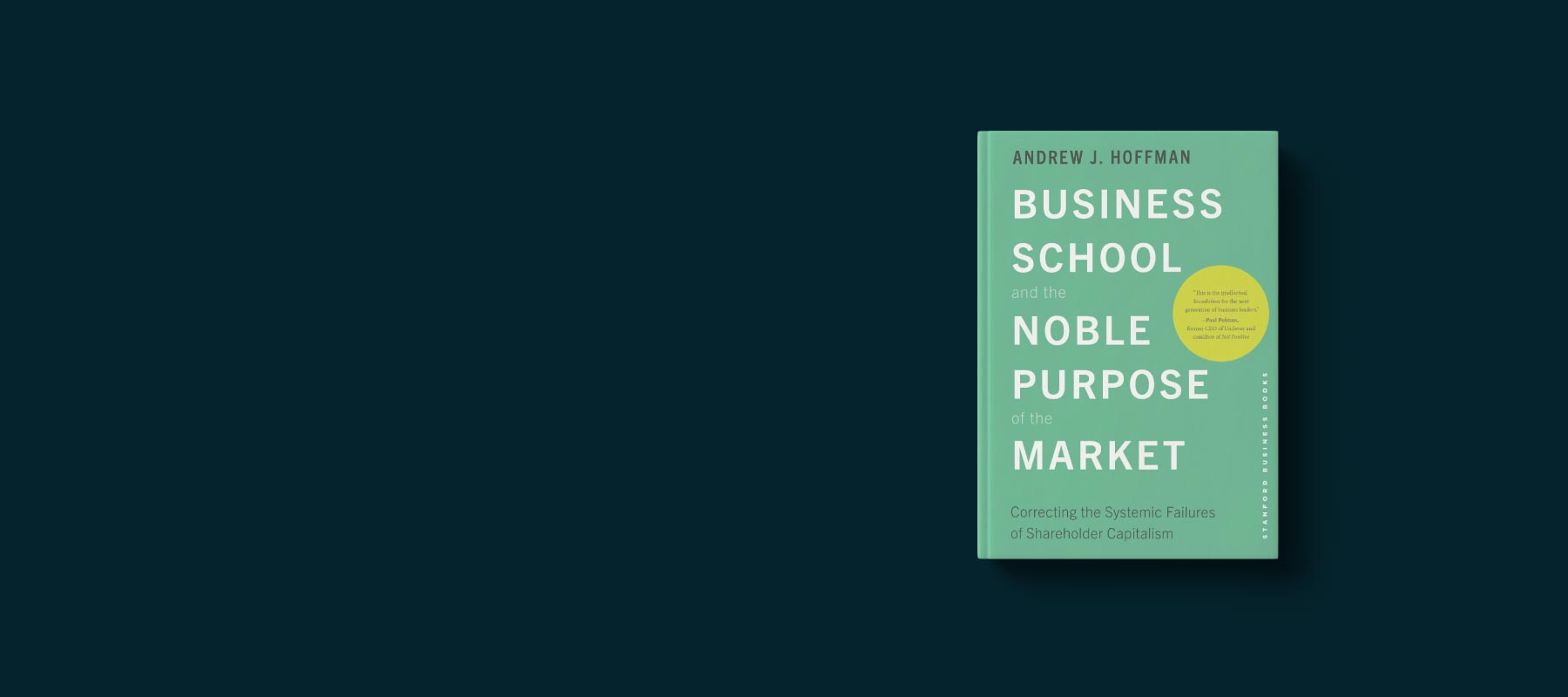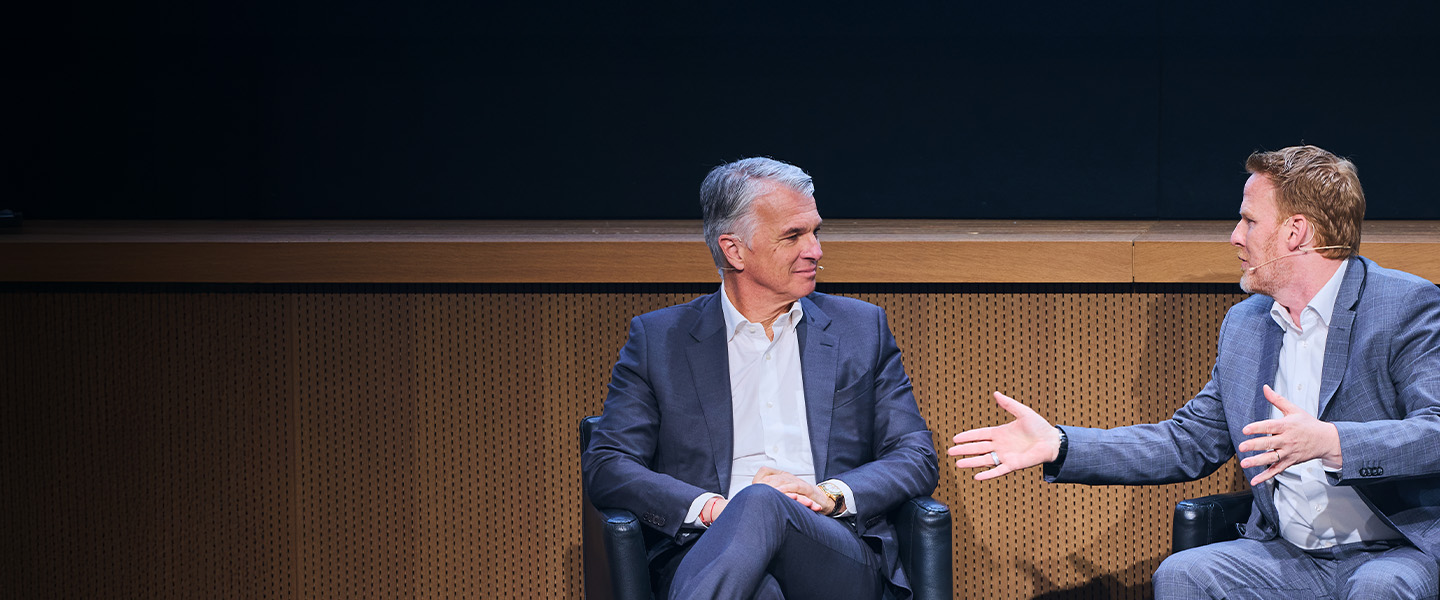Taking control in a crisis starts with looking within

The webinar “Crisis management: From disruption to continuity” led by Sameh Abadir, IMD Professor of Leadership and Negotiation, with additional input by IMD Research Fellow Marta Widz appeared live on Monday 20th April at 11am CEST.
It explores multiple positive ways to reframe the crisis, including the acceptance of certain realities.
Professor Abadir uses multiple anecdotes to suggest that firms can turn crisis into innovation and presents his best practices to do so. How do you start looking for future opportunities in your organization at this time? Professor Abadir says: mobilize resources quickly, possess strategic sensitivity (agree on trade-offs) and commit as a united front, for starters.
Crisis triggers certain behaviors in all of us, and awareness is the key to catch ourselves. Professor Abadir explains how we have a greater than usual need for honest feedback, either from coaches or friends, and how our emotions dominate, with our logic often remaining switched off. “If we have been trained to hide we hide, if we have been trained to run, we run.” People do what they know best under stress and knee-jerk reactions are common.
Be curious about peoples’ energy reserves and manage accordingly. Encourage people to bring bad news up as soon as possible. Under severe stress we cannot predict our or others’ behaviors. You likely will be surprised, be it positively or negatively. Indeed, “We cannot model this crisis; in fact it is modelling us […] and this is why it is so unique.”
We should have no illusions about the nature of crisis says Professor Abadir. Whilst there is a lot to gain from a crisis, there is also pain and the transformation from crisis to opportunity is more akin to the road to Damascus than it is the changing of a caterpillar into a butterfly. Practice a lot of sense-making, adapt as you go and really accommodate others in terms of their behavior under stress.
If you feel out of control that’s because we are in unchartered territory where speculation is rife. However, we can gain control of ourselves and indeed we must if we are going to avoid falling into one of our biases. These biases are different for each of us but, typically, we can all be overconfident and overoptimistic in such times.
In these times, being sensitive to weak signals is one of the most powerful behaviors and indeed it can be learned. “The ability to stay sensitive to weak signals could save our lives,” says Marta Widz.
“There are doers and there are canaries. The canaries see things below our screen; the weak signals,” explains Professor Abadir.
“Some people are born with weak signal sense. They step in and out of an elevator and remember what the other person was wearing and what airline was on their luggage tag. Others go into an elevator and see nothing!”
Fine-tuning your weak signals can prevent you falling into your biases as can your social capital — the wisdom of crowds. We have our private networks, our professional ones and our overlapping ones. However, our strategic networks are the only category of network that will change our lives in crisis. But we have to keep them active, dynamic and broad all year round – admittedly, a tiring process.
Professor Abdir also paints various pictures of possible post-crisis crises in our world, exploring the different directions they could come from on a geo-political level, and urging leaders not to be complacent in thinking the crisis ends when the current chaos calms.
Perhaps the biggest lesson of crises gone that we would do well to remember is that no institution or individual – from NASA to the Titanic – is too big to fail.
To view all webinars, please visit our Leading in Turbulent Times page here.
Research Information & Knowledge Hub for additional information on IMD publications

This episode takes you behind the scenes of a recent gathering led by the World Business Council for Sustainable Development together with IMD, where David Bach sat down with two sustainability leaders.

All organizations should have a plan to secure trust during, after (and even before) a crisis hits. Here are a host of examples, good and bad, to learn from.

Tired teams, wasted weekends, and unread reports—here are 7 ways to restore morale and reignite performance. Avoid unnecessary reporting and non-essential tasks.
The Handtmann case examines the co-CEO leadership model in the context of family business. Based on interviews with three key executives – the co-CEOs and the President of the Advisory Board – the case focuses on how Handtmann handled the leadersh...

The 7 shifts you need to make to lead in a turbulent world for acuity and inner rootedness. Grounded Edge Leadership.

Anxiety can sharpen focus, but if it impacts your well-being or leadership, it’s worth a check-in. These helpful questions may help you reflect.

As corporate America adjusts to a shifting political environment under President Donald Trump, companies must rethink their approach to DEI.

Andrew J Hoffman's book explains how Business schools must cultivate leaders who see beyond profits and embrace business as a powerful force for societal good.

IMD President David Bach goes from the global to the personal with one of the world’s most prominent bankers.

Virtual meetings can be exhausting, but your voice plays a key role in maintaining engagement. Discover expert techniques to keep your voice dynamic and impactful in the virtual world.
Research Information & Knowledge Hub for additional information on IMD publications
in I by IMD
Research Information & Knowledge Hub for additional information on IMD publications
in I by IMD
Research Information & Knowledge Hub for additional information on IMD publications
Research Information & Knowledge Hub for additional information on IMD publications
The Handtmann case examines the co-CEO leadership model in the context of family business. Based on interviews with three key executives – the co-CEOs and the president of the advisory board – the case focuses on how Handtmann handled the leadersh...
Research Information & Knowledge Hub for additional information on IMD publications
Research Information & Knowledge Hub for additional information on IMD publications
in I by IMD
Research Information & Knowledge Hub for additional information on IMD publications
in I by IMD
Research Information & Knowledge Hub for additional information on IMD publications
Research Information & Knowledge Hub for additional information on IMD publications
in I by IMD
Research Information & Knowledge Hub for additional information on IMD publications


